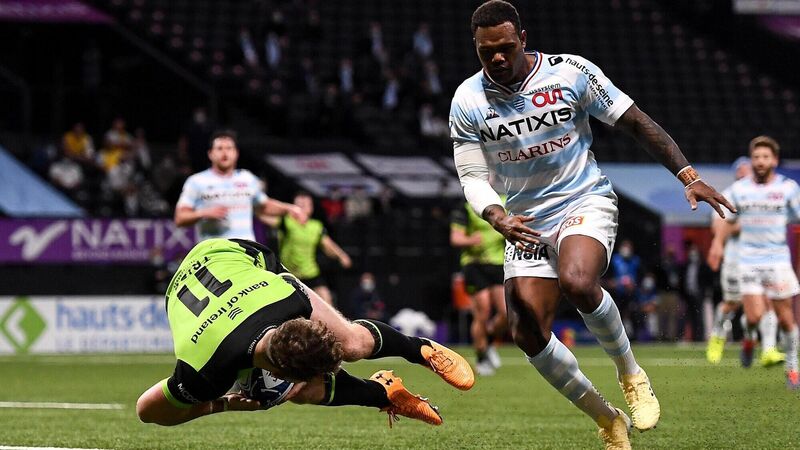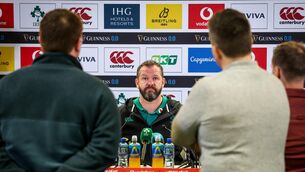Peter Jackson: Champions Cup tarnished if losers already giving up the ghost

Matt Healy of Connacht goes over to score his side's first try despite the attention of Virimi Vakatawa of Racing 92 during the Heineken Champions Cup Pool B Round 1 match between Racing 92 and Connacht at La Defense Arena in Paris, France. Picture: Harry Murphy/Sportsfile
The credibility of the Champions’ Cup is in danger of being dealt a grievous blow by a famous old English club who seem to have qualified as champion losers.










